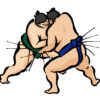What does mean gomen (ごめん) gomenasai?

Have you heard the word “Gomen!(ごめん)”?
When somebody says “Gomen”, it usually means “Sorry”.
The Japanese use the words as follows:
“Gome-n(ごめーん)” stretching the sound of “me”, or
“Gomenne-(ごめんねー)” adding “ne(ね)” at the end.
Also,
“Gomenna-(ごめんなー)” or
“Gomenyo-(ごめんよー)”
When “gomen” becomes a little polite, you can say, “Gomen-nasai(ごめんなさい)”.
If you want to be more polite, it becomes,
“Sumimasen(すみません)”
“Mousiwake-arimasen(もうしわけありません)”
“Shitsurei-shimasita(しつれいしました)”
Gomen: permitted to do anything?!
“Gomen(御免)” also means that something is officially approved or openly authorized.
This often appears in Japanese historical comics and movies.
Samurai, for example, often says “Kirisute gomen(斬り捨て御免)!" before slashing someone.
He is not apologizing though like “I’m sorry for slashing you!"
“Gomen” in this case means that the samurai is allowed to kill the offender. The samurai declares that before killing the person “the Bakufu (shogunate: government) allows me to punish you (so cut you)!”.
What is Tenka-Gomen(天下御免)?
“Tenka(天下)” means all the world under the clouds.
To have the permission of the world means that the person can behave freely as if permission from God was granted.
Today, the word is used to represent a person who is recognized by the whole, or who has absolute power in an organization.
What is Oyaku-Gomen(お役御免)?
However, although it may be troublesome for those who learn Japanese, “gomen” has the opposite meaning of being freed from the job title, job title, job, or dismissed.
It also means disposing of items that are no longer needed.
“Oyakugomen(お役御免)"
“Oyaku ga gomen ni naru(お役が御免になる)"
I was released from my duties.
“Fushimatsu de oyakugomen ni natta(不始末でお役御免になった)"
I was dismissed due to mismanagement.
Meaning of “Gomen kudasai"
“Gomen” is also a greeting when you visit or leave someone’s home.
When you get to someone’s house, you use it as a calling.
Gomenkudasai(ごめんください)
It is used today as a simple greeting, but it comes from the meaning of “grant permission to enter the house”.
It sounds confusing, but “gomenkudasai" is also used when leaving.
In historical drama, it is sometimes pronounced “gomen-nasutte(ごめんなすって)”.
What does “gomen da!(御免だ!)” Mean?
“Gomen da(御免だ)" is a word that expresses a feeling of dislike and refusal.
Arasoigoto wa gomen da!
(争(あらそ)い事(ごと)はごめんだ!
I don’t want to fight anymore!
Ano hito ni au nante mappira gomen da!
あの人(ひと)に会(あ)うなんてまっぴらごめんだ!
It’s totally unpleasant to meet that person!
Kimi ni kane wo kasu nante mou gomen dayo.
君(きみ)に金(かね)を貸(か)すなってもう御免(ごめん)だよ。
I don’t want to lend you money again.
















